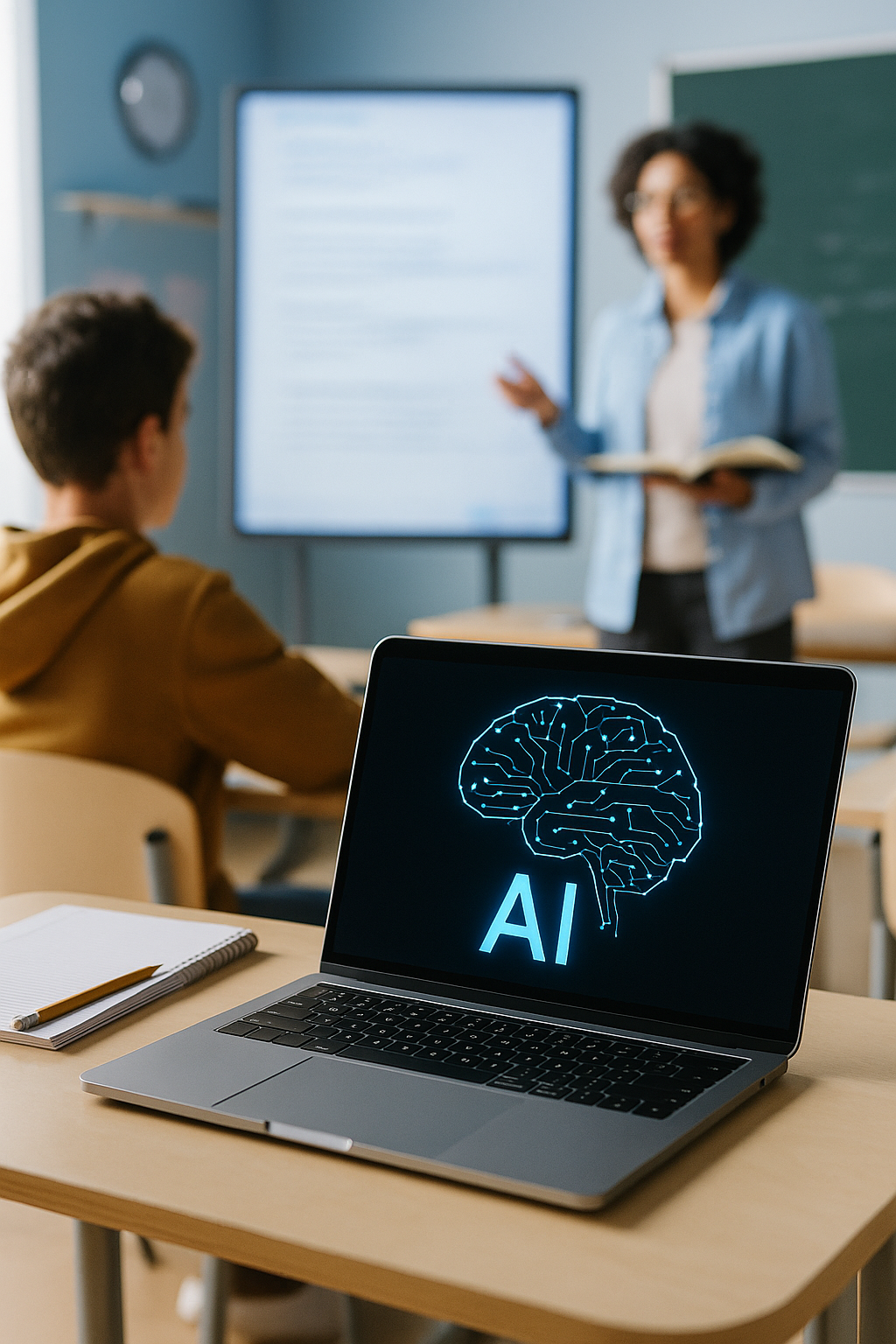Generative AI reshapes global education: Opportunities and risks
The authors point out that this surge of academic attention reflects the disruptive influence of generative AI. Once viewed as experimental, these tools are now embedded in both teaching practices and student learning habits. The scale and pace of publications demonstrate that the academic community is mobilizing to study not only the potential benefits but also the far-reaching risks of generative AI adoption.

Generative artificial intelligence, or GenAI, is rapidly transforming the landscape of global education, with researchers stressing both the scale of opportunities and the depth of challenges. A new international study published in SAGE Open presents the first large-scale evidence of how generative AI has reshaped research, teaching, and learning in the 21st century.
The paper, titled “Are Generative AI Technologies Transforming Education for the 21st Century? Research Trends, Challenges, and Benefits,” provides an in-depth look at how education systems and academic research are responding to the rise of tools such as ChatGPT, GPT-4, and other generative models.
How has research on generative AI in education expanded?
The study finds that research output in this field was negligible before 2020, but momentum built rapidly from 2021, culminating in a surge after 2023. By 2024, scholarly production exceeded 1,800 publications in a single year, reflecting how generative AI technologies have become central to debates on the future of education. The rapid growth highlights not only academic interest but also the urgency of addressing new challenges created by generative AI in schools and universities.
The analysis identifies leading academic outlets driving the conversation. Journals such as Education and Information Technologies, Computers and Education: Artificial Intelligence, and Education Sciences emerged as the most influential platforms publishing research in this area. Highly cited studies concentrated on key issues such as the impact of ChatGPT on assessment systems, the risks to academic integrity, and the potential for generative AI to personalize learning.
The authors point out that this surge of academic attention reflects the disruptive influence of generative AI. Once viewed as experimental, these tools are now embedded in both teaching practices and student learning habits. The scale and pace of publications demonstrate that the academic community is mobilizing to study not only the potential benefits but also the far-reaching risks of generative AI adoption.
Who leads global research and what are the main themes?
The study provides a global mapping of research trends. The United States emerged as the clear leader in terms of the number of publications, followed by Australia and the United Kingdom. Interestingly, Singapore distinguished itself with one of the highest citation impacts despite producing fewer studies, suggesting that its contributions carry disproportionate influence. This global spread demonstrates that generative AI is not confined to a single region but is shaping education debates worldwide.
The bibliometric analysis also revealed three dominant research clusters. The first cluster focuses on the integration of generative AI into higher education, especially its impact on student learning outcomes and academic integrity. The second cluster addresses the technical and ethical implications of large language models in educational settings, reflecting concerns about bias, transparency, and governance. The third cluster centers on the role of generative AI in medical and nursing education, where AI-driven tools are used for simulations, skill-building, and clinical decision support.
These themes illustrate the dual role of generative AI as both an enabler and a disruptor. It enables educators to introduce innovative teaching methods and support personalized learning experiences, while at the same time disrupting traditional academic norms by challenging established practices of assessment and integrity. The geographic distribution of research suggests that while developed nations are leading in volume, emerging economies are beginning to participate actively in shaping this dialogue.
What benefits and challenges does generative AI bring to education?
The study stresses that the benefits of generative AI are significant. AI-powered tools can deliver personalized learning pathways, encourage creativity, and increase efficiency in administrative and academic tasks. In higher education, they have the potential to transform curricula, automate grading, and provide real-time feedback to students. In medical education, they are being deployed for realistic simulations and competency-based training.
At the same time, the challenges are substantial. Generative AI raises concerns about plagiarism, reduced critical thinking, and dependency on machine-generated outputs. Ethical issues such as data privacy, misinformation, and intellectual property rights compound these risks. The research warns that without strong governance frameworks, generative AI could undermine the credibility of academic institutions and weaken trust in education systems.
The authors argue that educational policymakers and institutions must act quickly to balance benefits with risks. The development of clear guidelines for responsible AI use, investment in AI literacy programs, and strategies to strengthen academic integrity are identified as urgent needs. Without such measures, the study cautions that the promises of generative AI could be overshadowed by its pitfalls.
- FIRST PUBLISHED IN:
- Devdiscourse










